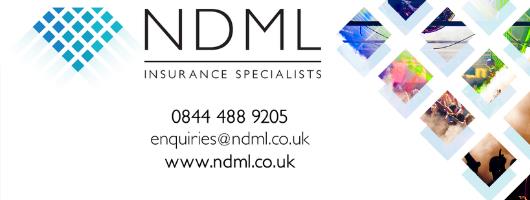 Add My Company
Add My Company
Sign In

Opening a bar or nightclub can be a very rewarding and profitable experience if done the right way. Every year, Britain’s night-time industry generates a whopping £70 billion for the economy.
And yet there have been some negative headlines about the health of Britain’s clubs and pubs. Some journalists have failed to understand what is happening to the industry.
There is no ‘decline’ in night-time leisure, but consumer habits do appear to be changing.
For entrepreneurs to open a bar or nightclub and do it well, they will need to understand these changes. This is why this guide exists: to help entrepreneurs recognise the dangers. And learn how to avoid them.
An important part of this is understanding the difference between ‘decline’ and ‘change’. So forget the doom and gloom in the newspapers. In 2018 the new night-time landscape is not littered with obstacles and pitfalls. Instead, ‘change’ has ushered in an infinite number of exciting opportunities.
Ask yourself, why should I open a bar or nightclub in 2018?
For an industry supposed to be in ‘decline’ there is actually a lot of positive news out there. Even in the same newspapers that have published negative stories in the past.
For nightclubs in particular, the evidence suggests that supply is not meeting demand. Illegal raves have nearly doubled in popularity over the past year. This suggests that a lot of people want to ‘rave’, but feel they have no choice other than to do so outside of a legal night club.
Things are looking especially bright for the pub trade. The number of independently owned pubs is actually increasing and not declining. Almost 8, 000 new independent pubs established themselves in the last decade.
And the success rate of opening a bar or nightclub is generally very good. Many more bars and nightclubs succeed rather than fail. Even after three years of opening more than half (53 per cent) of bars and nightclubs are still going strong.
So, contrary to popular belief, the night-time economy is healthy and prosperous.
Make the necessary considerations before opening a bar or nightclub first, and do it the right way
Bars and nightclubs can cost a lot of money to establish. Initial start-up costs can in the area of tens of thousands of pounds.
There may also be a lot of factors that can affect the start-up cost. Including the size of the bar or nightclub, its location, and the ambition behind it.
For example, when thinking about size as a factor, a small nightclub could have a similar start-up fee to a large pub. A great location might make things more expensive even for a small bar. This is because premium bar or nightclub areas usually demand higher rental costs. It is important to spend some time considering the location and, if it is a premium area, if it is worth the extra cost.
Here are a few points to think about beforehand:
How much space do you need to bring your vision to life?
Your financial strategy: When do you expect to be in the black; when do you expect to break even? How much should you save on a weekly basis, and what follow-up plan do you have in the event of failure? (It is always sensible to prepare for the worst, in every business scenario.)
Where/How will you recruit your bar staff?
Will your venue serve food?
Try to think about the not-so-obvious issues that could be waiting down the line. This is especially important during the financial planning stages. For example, it could be that more licences are required than you think. In that case License finder on the gov.uk website is a great starting point. If, for example, the Information Commissioner’s Office notification license is news to you, check it out.
The legal requirements may be a little different depending on their location in the UK. So be sure to check out the distinctions for Scotland, England, Wales, or Northern Ireland.
Assume your customers are going to want food
Studies have shown that, when Brits leave the house for at least three hours, nearly 40% end up spending money eating and drinking in a bar. An extra 12 per cent must still be hungry, because they buy yet more food afterwards.
Eating is both a luxury and a necessity. If a bar or nightclub does not provide food, then that could be a missed business opportunity. Even nightclubs, such as the Krazyhouse in Liverpool provide a snack bar, where clubbers can sober up with a cheeseburger or fries throughout the night.
Provide ‘gimmicks’
We live in an age of unprecedented access to information and services. The downside is our attention spans may have shortened because of it.
There are plenty of standard ‘bread-and-butter’ bars and nightclubs that do very well. And, despite the changes going on in the industry, they continue to charm and bring in the public.
But, as in keeping with the ‘Find your motif’ section above, bar and nightclub owners may want to find new ways to keep customers interested.
To again use the Krazyhouse as an example, the entire second floor is filled with arcade machines, pool tables, punch-bag machines; even rhinoceros and gorilla statues – the perfect backdrop for innumerable selfies.
Gimmicks are not cheapening or distasteful. They can add an irresistible charm – whether this is reinforcing a theme or providing a short-term stay factor. A photogenic beer garden or smoking area, draped in something as familiar and cost-effective as fairy lights, can work wonders for public perception
Now, the really important stuff. Ask yourself: What bar or nightclub insurance do I need?
There is a traditional but outdated assumption that nightclubs and pubs (and any other late night leisure attraction, for that matter) are areas of so-called ‘high risk’ – something that is typically reflected in insurance premiums. This closed-mindedness should not deter a nightclub or bar owner from getting the right insurance. There are certain elements of insurance that are lawfully required, and an establishment could be fined thousands of pounds if they are unable to produce the relevant documentation.
Employers’ Liability insurance
From the second you officially employ someone Employers’ Liability insurance becomes a legal requirement. Employers in any business without Employers’ Liability insurance risk a fine of £2, 500 every day until they get cover and £1,000 fine on the spot if they cannot produce the correct certificate. It’s deemed a necessary safety net and an absolute minimum. So, if an employee ever gets injured or ill in the workplace, you can help with the compensation costs. It is important to remember there is also such a thing as public liability insurance, and to not confuse the two. Although the two sound similar, they are very different.
What exactly is ‘Public Liability insurance’?
Public Liability insurance is not a legal requirement, but it is very important to have. Especially when there is a potential risk to public safety — as there will be in all establishments.
If you are lucky, thousands of people will want to spend their leisure time at your nightclub or bar, but as the people multiply so does the chance of an accident. Some of the most common accidents include customers slipping, or tripping. All it takes is for a spilled drink in the early hours on a busy weekend and you could have a claim on your hands. Public Liability really is a must. We would not offer cover without it, and nor should any other credible bar or nightclub insurance package.
In some cases Public Liability insurance is a requirement, if the bar or nightclub has an overseeing regulatory or membership body that requires it.
The rest: Building cover, Contents cover, and ‘Business Interruption’ insurance
With EL and PL insurance, the most important thing is everybody has a safety net. But then there is also the matter of the building itself, and the equipment and other assets. There are the usual covers, such as building and contents cover. These insurances protect not only the infrastructure but the speakers and laser systems. But there is another type of cover that you might not know about: Business Interruption.
It is not nice to think about, but sometimes disaster does strike. Depending on the circumstances, some venues may even have to close trading for a period of time. This is where Business Interruption becomes so invaluable. Business Interruption is different from typical building insurance. It covers the profit loss a venue may suffer as a result of stopping trading.
Business Interruption is surprisingly underappreciated. With one survey finding only 46 per cent of business owners could provide the relevant Business Interruption paperwork to insurance companies.
It is important to understand that in order for Business Interruption insurance to be viable, the building itself must be insured. It must also be clear that the physical damage to the building or property is what prevents the venue from trading. For example, if a venue is flooded, or scorched by fire, then the damage sustained might be too great for it to open and continue trading.
In that case, the safety net Business Interruption insurance provides would be invaluable.
For more information on OPENING A BAR OR NIGHTCLUB IN A CHANGING ECONOMIC LANDSCAPE, THE SENSIBLE WAY: AN ULTIMATE GUIDE FOR 2018 talk to NDML Insurance Specialists
Enquire Now
List your company on FindTheNeedle.

